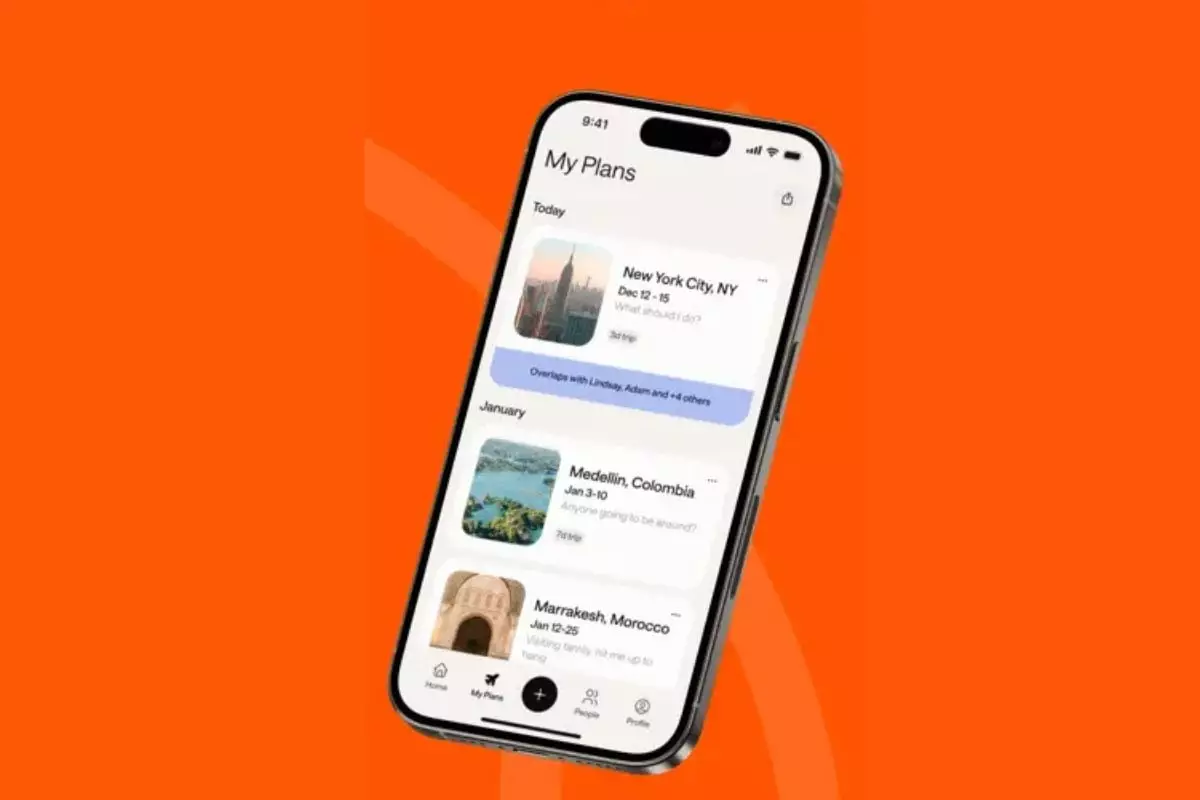The landscape of social media has been primarily dominated by platforms that thrive on the dissemination of content. From eye-catching photos on Instagram to the whirlwind of tweets on Twitter, the focus has largely been on public engagement, follower metrics, and virality. However, Ev Williams, the founder of Mozi, aims to disrupt this conventional model by placing genuine interpersonal connections at the forefront of his newly launched iOS app. Though initially only accessible on Apple’s ecosystem, the promise of reaching Android users is on the horizon, with a waitlist already set up for digital enthusiasts eager to participate in this alternative social experience.
Mozi’s premise is strikingly distinct: it prioritizes meaningful interactions over content broadcasting. Williams describes it not as a social media platform in the traditional sense but rather as a facilitator of genuine human connection. By eliminating features like photo and video sharing, public profiles, and follower counts, Mozi intends to create a safe space where users can engage with those they know. This approach challenges the conventional temptations of social media, where quantity often trumps quality.
The appeal of Mozi lies in its unique value proposition: it alerts users to opportunities to encounter acquaintances in the same city or at specific events. Imagine receiving a notification that a friend is attending a concert or gathering nearby. The app guides users towards more spontaneous and meaningful in-person interactions, steering away from the superficial engagement that has characterized many popular platforms today. Williams articulates this mission clearly: “The goal is straightforward: to connect more often—and in person—with the people you care about.”
Moreover, Mozi offers a helpful utility in event planning. With numerous activities competing for attention on weekends, the app enables users to determine where their friends are headed, allowing them to make informed decisions about which events to attend. This decision-making tool enhances social engagement by aligning user choices with those of their closest contacts, thereby fostering community and connectedness.
Prior to this broader release, Mozi underwent a soft launch aimed at testing its features within a smaller community. The feedback has been enlightening and encouraging, revealing that users have not only embraced the app but have also benefited from its designed functionalities. Reports indicate that Mozi successfully facilitates gatherings among friends, allowing them to reconnect in a world increasingly dominated by virtual communication.
This positive reception has prompted Williams to remain optimistic about the app’s future. The absence of public profiles and follower counts may seem limiting, yet it effectively emphasizes the app’s core mission: meaningful connections without the noise of performative social media culture. Feedback mechanisms are critical in the app’s evolution, and Williams’s approach to integrating user insights into ongoing development will likely determine Mozi’s longevity in a fiercely competitive market.
In an era where privacy concerns are paramount, Mozi stands out by addressing these issues head-on. A user’s posts are only visible to contacts verified through phone numbers, drastically reducing the potential for unwanted interactions or exposure. This design philosophy empowers users to control their social circle and share information only with those deemed ‘close friends.’ By endorsing a tighter-knit communal approach, Mozi sidesteps the pitfalls of anonymity and the toxicity often seen on traditional platforms.
Furthermore, users have the autonomy to remove contacts from their network, adding an additional layer of privacy and personal agency. Such features epitomize Williams’s vision of building a more human-centric social platform, one that aligns seamlessly with the shifting perspectives on privacy in digital interactions.
Mozi represents a fascinating exploration into how social media can evolve to better accommodate human connection. By stepping away from the conventional trappings of content-sharing and follower counts, Williams’s app invites users to engage genuinely and meaningfully with those around them. The features, combined with a proactive approach to privacy and user experience, herald a novel solution to the challenges posed by modern social media culture. As Mozi prepares for its expansion to Android, it will be intriguing to observe whether this alternative model will resonate with a broader audience seeking more authentic interactions in their social lives.

